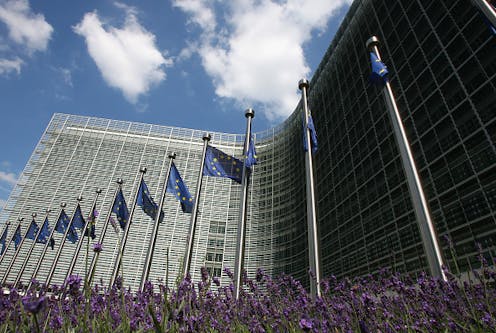
Five years since the African Union (AU) leaders and their European Union (EU) counterparts held their 5th meeting in 2017, the two regional organisations have met again. The February 2022 meeting – 16 months overdue because of COVID – was significant given the actual and potential size of the two blocs.
The relationship between the two continents (the subject of a book I have edited) has been tested in recent months. Africa has felt neglected by Europe as it struggled to access COVID vaccines. Europe has been uncomfortable with China’s rising influence in Africa.
But their future depends on the relationship. The current dialogue between the two blocs is about priority areas of economic cooperation, job creation and climate change. Others are migration management, investment in youth, and peace and security.
If they can build real partnerships, both continents can prosper. Conversely, entering into a competitive relationship or seeking partnership elsewhere represents a significant loss of opportunity.
Important connections
Europe remains Africa’s largest foreign aid provider. The flow of trade and investments between the two continents is high. Africa’s exports to the European Union, for instance, totalled US$146 billion in 2021 compared to its imports of US$142 billion.
Technological transfer is similarly robust, with recent new lines open on pharmaceuticals. Africa provides a significant amount of raw materials and labour to Europe. Much of Africa’s diaspora population live in Europe.
The two continents are also connected in cultural terms, at times passing through the city cultural diplomacy. The level of cultural exchange is remarkable: from university system to religious integration; and from a linguistic commonality to the arts scene.
Security threats are also shared by the two continents. From terrorism to cyber-attacks, Africa and Europe face common problems, and need to find common responses.
In short, Africa needs Europe, just as Europe needs Africa.
Read more: The EU-Africa summit is now the AU-EU summit. Why the upgrade matters
The Africa Union-European Union meeting in Brussels stated its areas of focus as: growth financing; health systems and vaccine production, agriculture and sustainable development; education, culture and vocational training; migration and mobility; private sector support and economic integration; peace, security and governance; climate change and energy transition, and digital and transport connectivity.
These focus areas are well chosen but the question is how best to unlock the potential of this partnership.
What’s missing?
With the signing of the African Continental Free Trade Area in 2018, the continent laid the ground for significant growth through trade. The COVID pandemic that delayed this growth is slowly fading away. The time is ripe for a takeoff.
The African market of 1.2 billion people, with an average age of 27 and a gross domestic product of more than US$3,000 billion, is ready for an enabling partnership.
Beyond political cohesion and stability, Africa lacks growth financing and active support of its private sector. Governments and international organisations can certainly support regional growth. But in my opinion it is from partnerships with the private sector that most resources can be generated.
Local companies should make long-term investments to enhance their capabilities and position themselves as key players in national development. But this cannot happen until governments set up adequate normative frameworks for good business practices. For instance, Kenya has a public-private partnership law that gives incentives and guarantees continuity (in case of political transition) to investors who put money in public projects.
Such interventions would swell the middle class to drive growth. That, in turn, could deliver economic and political stability, as the history of modern state building shows.
Infrastructure development is another key area for investment. Land, air, and maritime transportation is still severely limited across the continent. More roads, rails and flight connections are needed in order to achieve the full potential of economic growth in the region.
Strengthening of intercontinental value chains (step-by-step activities that transform raw material or ideas into products) is a priority area for the partnership between Africa and Europe. Functioning value chains could have spillover effects on the domestic industrial sector, and help boost national self-sufficiency. This is particularly critical for sectors such as pharmaceuticals where the COVID pandemic has exposed weakness.
The continental project for free trade is an essential component for the growth and industrial transformation of Africa. Its building blocks are the various regional economic communities that currently exist across Africa. The cooperation between Africa and Europe needs to strengthen these groupings.
Connected to the search for a single market is the need for investment in human capital. Empowering young people could bring demographic dividends (economic growth resulting from a change in the age structure of a population). This can be accelerated through mobility between the two continents, and collaboration between European and African universities.
Genuine cooperation
Genuine cooperation between Europe and Africa must be inclusive and mutually beneficial. Otherwise, the partnership will not hold.
If properly developed, the relationship between Africa and Europe could constitute a very significant component of global inclusive development.
Raffaele Marchetti does not work for, consult, own shares in or receive funding from any company or organisation that would benefit from this article, and has disclosed no relevant affiliations beyond their academic appointment.
This article was originally published on The Conversation. Read the original article.







